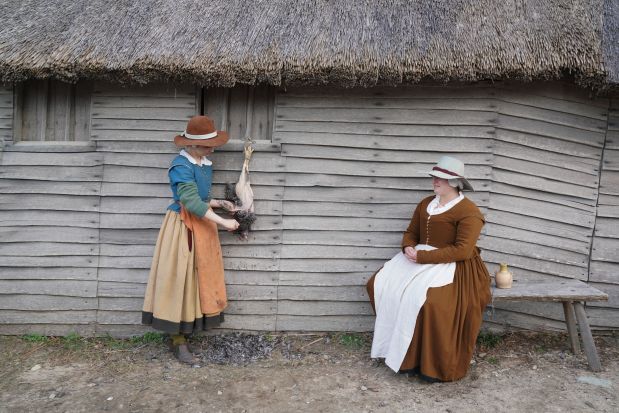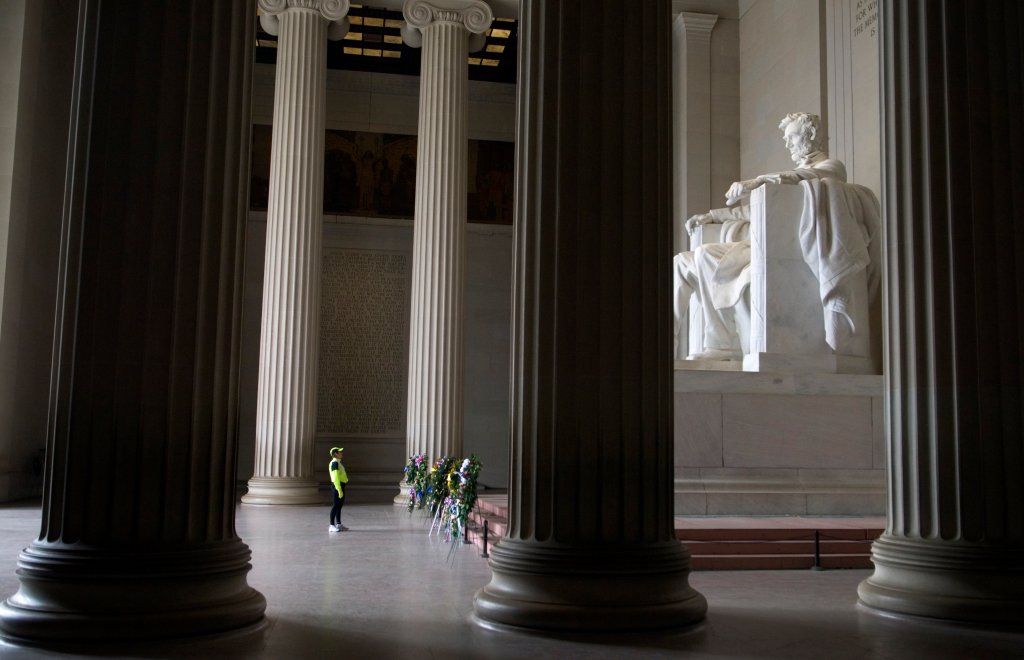Three years into the savagery of a cruel Civil War, President Abraham Lincoln issued a proclamation for a national feast day, even giving it a firm date: “the last Thursday of November next.” When we despair over our own current virulent divisions, we should remember that Lincoln’s call for a day of thanksgiving at harvest time was offered as a common bond for all Americans. His appeal transcended national pain, separation and crisis.
Right now, the streets of our city are seeing efforts to seize, detain and deport new and longtime residents in our neighborhoods. Neighbors are taking action to protest these threats, and there are passionate disagreements on our way forward in Chicago. Our current strife is part of a longer story.
Chicago’s own Gwendolyn Brooks, an educator, a lifelong poet of the South Side, and the first African American to win a Pulitzer Prize, keenly understood this. And she understood the strength that comes from our mutual concern and care. She wrote, after hearing the singer Paul Robeson perform:
We are each other’s harvest:
We are each other’s business:
We are each other’s magnitude and bond.
In our present passions, caught in circumstances testing our sense of what being neighbors in Chicago can look like, it is notable that Lincoln termed the pilgrims “Plymouth emigrants.”
Lincoln said, “The work of the Plymouth emigrants (sic) was the glory of their age. While we reverence their memory, let us not forget how vastly greater is our opportunity.”
Few people today realize it was Lincoln, under the pressure of that savage division, who created the holiday we celebrate today as Thanksgiving. He took a regional tradition from the New England story of the pilgrim feast and binding it to earlier fast and prayer proclamations issued by George Washington, John Adams and James Madison, evoking ancient themes of Thanksgiving and repentance at the time of harvest.
Lincoln was prodded to create this new national holiday by his secretary of state, William Henry Seward, as well as by a very persistent female magazine editor, Sarah Josepha Hale. Hale, mostly remembered today as the author of “Mary Had a Little Lamb,” was a widow raising five children on her own. Her decadeslong determination for “a National and fixed Union Festival” was a driving force behind Lincoln’s instituting a truly national holiday, one directed to both North and South. In the midst of suffering almost beyond imagining, Lincoln strove to illumine the country’s travails with compassion.
Remembering Lincoln’s unique contribution to our modern Thanksgiving deepens our understanding of a celebration that is more than childhood images of pilgrims and Native Americans eating together. By recovering the Civil War origins of the holiday, we can gain an appreciation for the only holiday that Lincoln envisioned as a way for a divided people to offer thanks together.
His 1863 Thanksgiving Proclamation helped transform a New England harvest festival and feast into a holiday belonging to all Americans. While that fact is worth recovering, even more significant is Lincoln’s sense that those long-ago “emigrants” might instill a glory to a people so bitterly and bloodily divided.
 Re-enactors pluck a bird in the English Village at the Plimoth Patuxet Museums on Thanksgiving Day, Nov. 25, 2021, in Plymouth, Massachusetts. (Bryan R. Smith/Getty-AFP)
Re-enactors pluck a bird in the English Village at the Plimoth Patuxet Museums on Thanksgiving Day, Nov. 25, 2021, in Plymouth, Massachusetts. (Bryan R. Smith/Getty-AFP)
In the last week of his life, with the war almost over, Lincoln began his last public address with these words: “We meet this evening, not in sorrow, but in gladness of heart. The evacuation of Petersburg and Richmond, and the surrender of the principal insurgent army, give hope of a righteous and speedy peace whose joyous expression can not be restrained. In the midst of this, however, He, from Whom all blessings flow, must not be forgotten. A call for a national thanksgiving is being prepared, and will be duly promulgated.”
That new proclamation of Thanksgiving was never written, with Lincoln’s assassination three nights later. Yet in its stunned grief, the nation remembered how, in the darkest and most discouraging days of the war, the president had spoken to them in language that fused an appeal of gratitude along with an anguished search for the nation’s highest purpose.
It is good to remember this opportunity, this potential gratefulness, in the streets and businesses and homes of our generation.
While those early immigrants may be evocations of a nation turning from separation to a common table, let us consider his admonition of how “vastly greater is our opportunity.”
If one can make such an appeal in the midst of Civil War, we can surely do so now amid our divisions. What Chicago has endured in recent weeks is not its alone — it is part of a national experience. By recovering Lincoln’s elevation of Thanksgiving in a time of pain, we can deepen our appreciation for a holiday that is open, nonsectarian and free-spirited. As the 1863 Proclamation of Thanksgiving declared, “It has seemed to me fit and proper that they should be solemnly, reverently and gratefully acknowledged as with one heart and one voice by the whole American people.”
Our national feast day’s date is now firm and determined. It is for us to remember, as Brooks asserted, we are truly each other’s harvest, each other’s magnitude and bond.
Paul Kendrick, a Lincoln Park resident, is the co-author of three historical books, most recently “Nine Days, the Race to Save Martin Luther King’s Life” and “Win the 1960 Election.” He served in President Barack Obama’s White House and is currently a candidate for the Illinois House’s 12th District.
Submit a letter, of no more than 400 words, to the editor here or email letters@chicagotribune.com.
